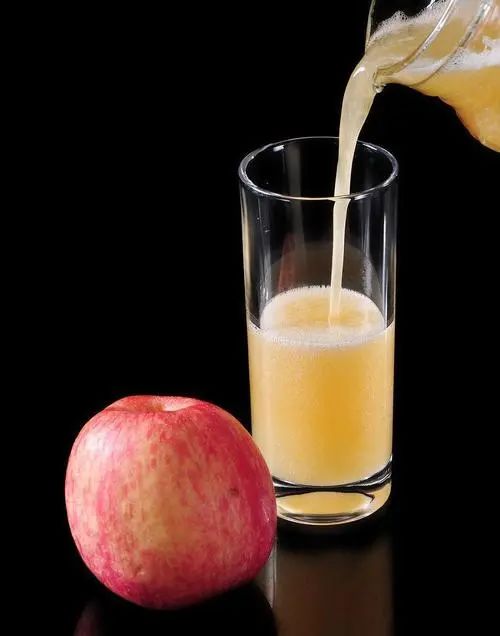发布日期:2021-01-19 点击次数:183
Studies have shown that there are links between apples and weight loss, brain health (including Alzheimer's disease), certain cancers, heart and lung health, and stroke. Apples are an excellent source of dietary fiber. In addition, apples are also a healthy source of antioxidants, which are related to disease prevention. Recent studies have shown that the nutritional content of apples has many health benefits.
Promote weight loss: Researchers from the State University of Rio de Janeiro studied the effect of fruit intake on weight loss and found that a low-calorie diet of three apples or pears a day had a more pronounced weight loss effect than no fruit added to their diet. (Nutrition, 2003,19:253-256)

Age-related memory loss and Alzheimer's disease: Mounting evidence from the University of Massachusetts Lowell shows that eating apples and drinking apple juice can help improve brain health and reduce Alzheimer's disease Symptoms. With a balanced diet, eating apples and drinking apple juice can prevent oxidative damage to the brain that causes memory loss. Studies have found that food equivalent to 2-3 cups of apple juice or 2-4 whole apples per day in animals is beneficial to brain health. A clinical trial showed that in a group of patients diagnosed with moderate to severe Alzheimer's disease, drinking apple juice can significantly improve their mood and behavior.
Brain health and neurodegenerative diseases: Cornell University researchers also found in their in vitro studies that apple nutrients can protect brain neurons from oxidative damage. This damage may lead to neurodegenerative diseases such as Alzheimer's and Parkinson's. This study highlights a special apple flavonoid called quercetin, which is a major protective compound. (Journal of Food Science, 2004 69: S357.S360)
Breast Cancer Department: A series of studies by Mel University (Comell University) evaluated the direct impact of apples on the prevention of breast cancer in animals. The more apples you eat, the greater the reduction in the incidence and number of tumors in experimental animals. The tested apple intake is equivalent to one to six apples per day for 24 weeks. (Agris, Food Chemistry, 2009, 53: 2341-2343)
Pancreatic cancer: Quercetin is a flavonoid naturally present in apples. It has been identified as one of the most beneficial flavonols for preventing and reducing the risk of pancreatic cancer. Although the overall risk of study participants was reduced, smokers who consumed foods rich in flavonols had a greater risk reduction. (American Journal of Epidemiology, 2007, 8: 924-931)

Colon cancer and liver cancer: A research team from Cornell University discovered a group of phytochemicals that are high in the peel, which seems to kill or inhibit at least three different types of human cancer cells (colon cancer, breast cancer and Liver cancer) growth. (Journal of Agricultural and Food Chemistry, 2007, 55 (1): 4366-4370)
Prostate cancer: Researchers in Rochester, Minnesota. The Mayo Clinic in the United States (MayoClinic) reported that quercetin, a plant nutrient rich in apples, may provide a new way to prevent or treat prostate cancer. In an in vitro study, they found that Ulcertin inhibits or prevents the growth of human prostate cancer cells by blocking the activity of the androger hormone. Previous studies have shown that androgens are related to the growth and development of prostate cancer (Oncology, 2001, 22: 409-414)
Colorectal cancer: Eating only one apple a day can reduce the risk of colorectal cancer by more than one third. Researchers in Poland investigated the diet and lifestyle of 592 colorectal cancer patients and 700 non-cancer patients. Non-cancer patients eat more apples than cancer patients. The more apples they eat every day, the less likely they are to develop colorectal cancer. They also found that even if a person has a low total intake of fruits and vegetables, he can see this anti-cancer effect by eating at least one apple a day. The observed protective effect may come from the abundant flavonoids and other polyphenols in apples, which can inhibit the occurrence of cancer and cell proliferation. In addition, apples are a good source of fiber, and a high-fiber diet is believed to reduce the risk of colorectal cancer. (European Journal of Cancer Prevention, 2010,191: 42-47)
The United States Department of Agriculture (USDA) classifies three specific varieties of apples as antioxidant sources. Although this study specifically emphasized three apple varieties, all apples contain beneficial antioxidants and have other healthy nutritional properties. Apple peel contains two-thirds of antioxidants. (United States Department of Agriculture Agricultural Research Center, 2007)